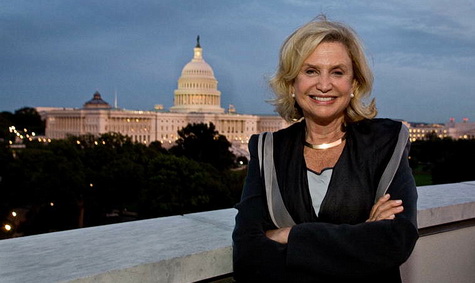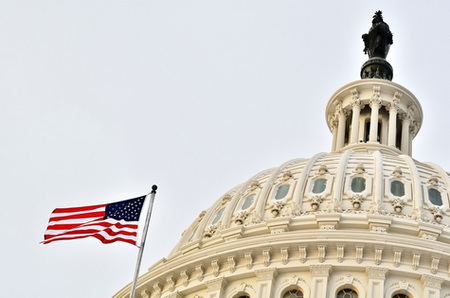A five-year, $494 billion surface transportation bill unveiled June 3 by House Transportation and Infrastructure Committee Democrats would authorize highway, railroad, and transit programs to replace the current $226 billion Highway Trust Fund that expires on Sept. 30. (The Investing in a New Vision for the Environment and Surface Transportation in America – INVEST in America Act – Bill text | Factsheet | Bill Summary | Section-by-Section)
- Rep. Peter DeFazio (D-OR), chairman of the Transportation and Infrastructure (T&I) Committee, said, “We are in multiple crises at the moment … But we have to move forward with our very important reauthorization of surface transportation. (BGov, June 3)
- The INVEST in America Act is part of a $760 billion “Moving Forward Framework” rolled out in January by House Speaker Nancy Pelosi (D-CA) with the chairs of three House committees to address national infrastructure investment. (Roundtable Weekly, Jan. 31, 2020)
- A plan on how to pay for the new bill has not yet been determined by the House Ways and Means Committee. The Roundtable submitted extensive comments on infrastructure policy to both committees last year. (March 20, 2019 W&M comments; April 29, 2019 T&I comments.)
This week’s T&I bill contains elements that align with Roundtable policies including:
- Improve the Transportation Infrastructure Finance Innovation Act (TIFIA) loan program to encourage more public-private partnerships for infrastructure projects;
- Encourage high-density, transit-oriented development by incorporating the Build More Housing Near Transit Act (H.R. 4307), which would require localities applying for Federal Transit Administration grants to assess feasibility of affordable housing construction along mass transit routes (Up for Growth Action’s 1-page summary);
- Authorize a Vehicles Miles Travelled (VMT) pilot program as a potential, more sustainable funding source for the Highway Trust Fund as opposed to the controversial federal “pay-at-the-pump” gas tax;
- Revise current Capital Investment Grant (CIG) and TIFIA program state/local “cost share” commitments to allow funding for major projects (like the New York-New Jersey Gateway Program along the Amtrak Northeast Corridor); and
- Prioritize use of Highway Trust Funds with a “fix it first” strategy to focuses on repair and rehabilitation of decaying infrastructure.
- The House bill also includes measures on climate resiliency and Amtrak that are expected to face opposition by the Republican majority in the Senate. For example, the measure would require the U.S. Department of Transportation (DOT) to establish new greenhouse gas performance measures, and authorize a new DOT program to support carbon pollution reduction.
- The Democratic T&I committee bill is considered the first salvo in the transportation funding debate to reauthorize the Highway Trust Fund before it expires on September 30, 2020. Additional committees from both the House and Senate need to produce other portions of the final legislation.
- The T&I committee is scheduled to consider the INVEST in America Act on June 17 – and a vote on the House floor is could occur at the beginning of July. (BGov, June 3)
- The need for infrastructure investment to help restart the economy and encourage long-term growth was also the focus of a June 3 meeting between President Trump and New York Gov. Andrew Cuomo at the White House. (Wall Street Journal and New York Times, June 3)
- Gov. Cuomo said, “It was about: How do we supercharge the reopening? It was a good conversation.” The two policymakers discussed obstacles to federal funding and expedited approvals for significant New York transportation initiatives such as the Gateway Project, which would require new rail tunnels under the Hudson river. (WSJ, April 18, 2019)
- President Trump on June 4 signed an executive order that cites an economic emergency to waive laws for expediting federal approval for highways, pipelines and other projects. The Washington Post cites a senior administration official stating that the action will help the economy recover from novel coronavirus losses. (Washington Post, June 4)
The Real Estate Roundtable will host an infrastructure discussion with Gov. Cuomo on June 11 during the organization’s first Virtual Annual Meeting.
# # #






